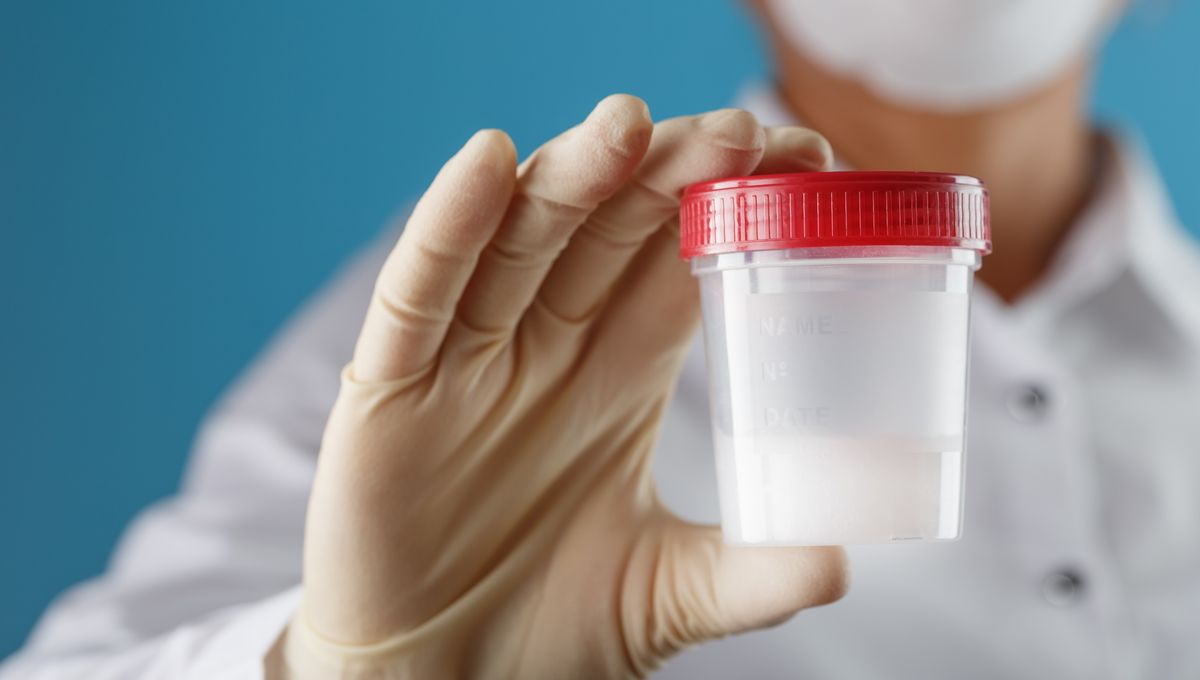
SARS-CoV-2, the virus whose name we all wish we didn’t know, can hang around in sperm for 110 days after infection according to a new study. There’s long been a suggestion that COVID-19 could have a negative impact on sperm, but the authors believe their study is the first to show just how long the virus can linger in semen samples.
We mostly think about respiratory symptoms when we think of COVID-19 – cough, breathlessness, loss of sense of smell – but we’ve learned during the course of this pandemic that the virus is not super picky when it comes to which tissues it invades. Traces of SARS-CoV-2 have previously been identified in the testicles and in penile tissue, but limited research has focused on whether it can be detected in semen.
A team of researchers from Brazil set out to address this knowledge gap. Semen samples were collected from 13 COVID-19 patients aged 21-50 who had a range of symptoms from mild to severe. All were inpatients at the Hospital das Clínicas, run by the Faculty of Medicine of the University of São Paulo.
The samples were analyzed up to 90 days after the patients were discharged, and 110 days after their diagnoses. PCR tests for SARS-CoV-2 in semen were negative in all cases, but when the researchers looked at the sperm cells themselves, they did find evidence of virus in 72.7 percent of samples from those with moderate and severe COVID-19.
One of the patients who had only had a mild infection also showed evidence of virus in sperm, and in two of the other samples the team observed structural abnormalities in the sperm similar to what has previously been seen in COVID-19 patients.
Based on this, the team concluded that 11 of the 13 patients in their sample were showing signs of lingering SARS-CoV-2 in their sperm up to 110 days after first being diagnosed with the infection.
“Moreover,” explained the study’s senior author Jorge Hallak in a statement, “we found that the sperm produced ‘extracellular traps’ based on nuclear DNA. In other words, genetic material in the nucleus decondensed, the sperms’ cell membranes ruptured, and the DNA was expelled into the extracellular medium, forming networks similar to those described previously in the systemic inflammatory response to SARS-CoV-2.”
These kinds of traps are an important part of the immune response, capturing harmful microbes, but if they become overactive they can cause damage to tissues. The authors suggest that during a COVID-19 infection, sperm may “sacrifice” themselves by producing these traps to help the body’s defenses. It was not previously known that sperm were involved in immunity in this way, so Hallak says this finding could represent a “scientific paradigm shift”.
Hallak and colleagues have been advocating for caution when it comes to understanding how COVID-19 may affect reproductive health since the early months of the pandemic. These results add to the growing body of evidence in this area, as well as highlighting a potential new function of sperm.
Although this is a small study – and despite the fact that virus was only detected within the sperm cells and that tests on the semen as a whole were negative – Hallak suggests that anyone seeking to conceive, or to have their sperm used for assisted reproduction, might consider a break of at least six months after having COVID-19.
The study is published in the journal Andrology.
Source Link: Virus Behind COVID-19 Could Linger In Sperm For 110 Days After Infection Starts